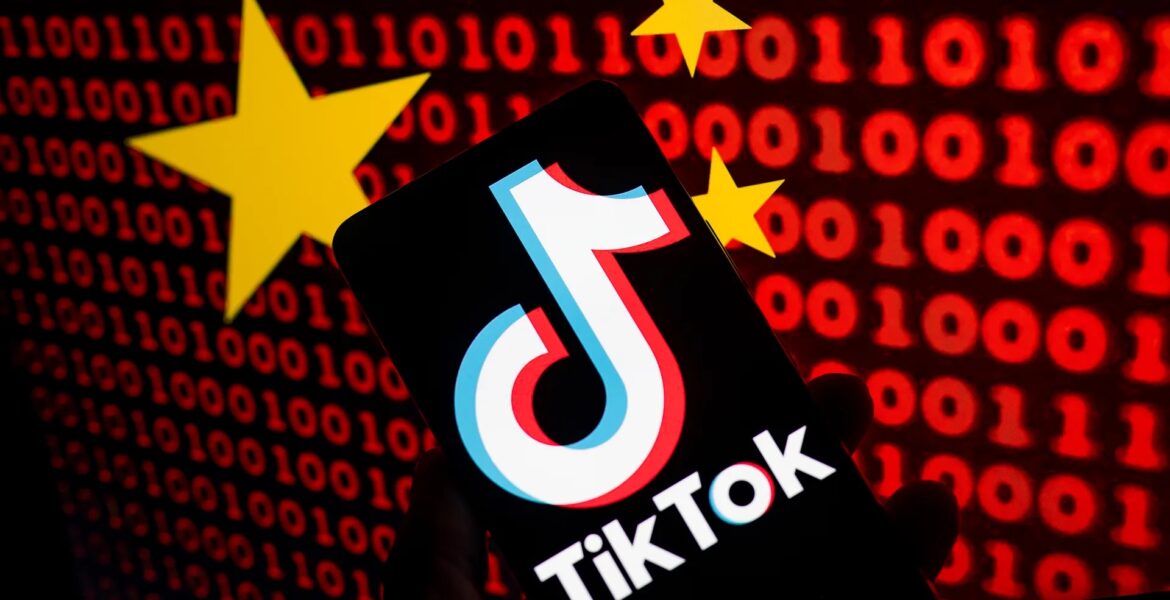The US has almost banned the Chinese social media app TikTok amid reports of spying and sharing sensitive data with the Communist-led regime of China. Several countries have already banned TikTok over national security concerns.
Senator Mark Warner from Virginia said: “The idea that we would give the Communist Party this much of a propaganda tool, as well as the ability to scrape 170 million Americans’ personal data, it is a national security risk.”
The House of Representatives has passed legislation disallowing TikTok’s operations in the US if the Chinese owner does not sell its stakes. And the Senate followed it soon. The move involving the option of divestment will not affect users as it would remove the possibility of data sharing with the Chinese government. There will be much wider implications once the app is banned or freed from the clutches of the Beijing government.
Data protection and consumer privacy expert Sara Collins said, “Given China’s authoritarian government and its control of its corporations, TikTok rightly deserves additional scrutiny.” India had banned several Chinese apps, including TikTok, in 2020 over security concerns. Indian government sources said the data collected by the Chinese apps allowed “elements hostile to the sovereignty and integrity of India and for activities detrimental to national security.”
India’s move was followed by some countries later: Denmark, Belgium, France, Taiwan, and the European Union. The EU has banned the social media platform on its employees’ phones as a cybersecurity measure. President Ursula von der Leyen recently said banning the app in Europe was not ruled out. “It is not excluded. We know exactly the danger of TikTok,” she said.
France banned the app in 2023 saying the Chinese app lacked sufficient levels of cybersecurity and data protection. “In order to guarantee the cybersecurity of our administrations and civil servants, the government has decided to ban recreational applications such as TikTok on the professional phones of civil servants,” said French minister Stanislas Guerini.
Denmark banned the social media platform in 2023 amid fear of espionage as the social media application sought “certain rights and access on the device.” Danish government had asked its lawmakers and employees to refrain from using the app. Even all seven universities in the country followed the action.
There was a strong recommendation to uninstall the app following the warning from the national IT security agency, Center for Cyber Security (CFCS). “When the CFCS estimates there is a risk of espionage by using TikTok, then we adhere to that. We thereby follow the line that the centre has set regarding state institutions,” said Soren Gade, speaker of the Danish Parliament.
CFCS TikTok possessed the ability to collect information from the users that can be for spying purposes. It said the Chinese app seeks very wide rights and access on the device.
“These accesses allow the app to collect a wide range of information and associate it with the user’s identity. This applies, among other things, to information about location, contacts and browser data, etc. When using TikTok, the user usually also gives access to the mobile device’s microphone and camera,” it said.
During the same period, the Belgium government restricted the use of TikTok. Government staff was forbidden from installing and using TikTok on their phones. “We can’t be naive: TikTok is a Chinese company that currently is mandated to cooperate with Chinese intelligence services,” Belgian Prime Minister Alexander De Croo.
Belgian National Security Council expressed concern over the fact that TikTok is required to cooperate with Chinese intelligence services. TikTok is mandated to share information with the communist government in Beijing under Chinese security laws, which makes the app risky for foreign countries’ national and strategic security, CFCS noted.
Taiwan has classified TikTok as a dangerous product, which comes on the heels of the US inching closer to banning the Chinese app. Taiwan has already banned the use of the app on government campuses and by government staff. Now, it is likely to ban the app completely by extending restrictions to schools, non-governmental agencies, and public spaces.
The social media platform is being used by Beijing to accelerate propaganda against Western governments, promote anti-patriotism and distrust toward democracy, said Dimitar Lilkov, a senior research officer at Brussels-based Wilfried Martens Centre for European Studies. “We shouldn’t allow such a platform to have unhindered access to our citizens, while it has direct links to the Chinese Communist Party and is bound by Chinese national security law to cooperate with the state,” he said.
READ MORE: Rape in Pakistan: Women continue to feel insecure amid insignificant conviction rate.

